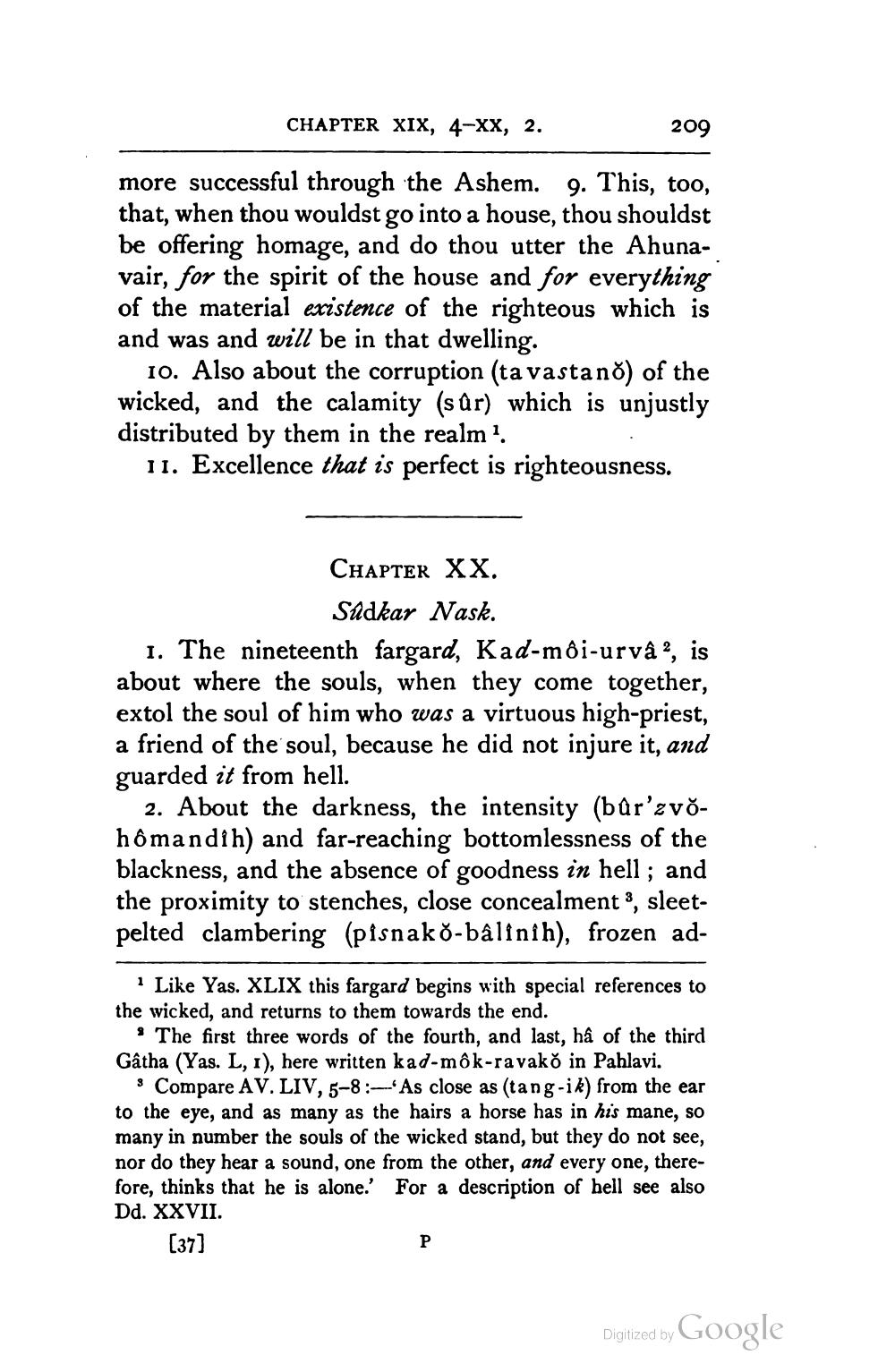________________
CHAPTER XIX, 4-XX, 2.
209
more successful through the Ashem. 9. This, too, that, when thou wouldst go into a house, thou shouldst be offering homage, and do thou utter the Ahunavair, for the spirit of the house and for everything of the material existence of the righteous which is and was and will be in that dwelling.
10. Also about the corruption (ta vastanó) of the wicked, and the calamity (sûr) which is unjustly distributed by them in the realm?.
11. Excellence that is perfect is righteousness.
CHAPTER XX.
Sadkar Nask. 1. The nineteenth fargard, Kad-moi-urvâ?, is about where the souls, when they come together, extol the soul of him who was a virtuous high-priest, a friend of the soul, because he did not injure it, and guarded it from hell.
2. About the darkness, the intensity (bûr'zvõhômandih) and far-reaching bottomlessness of the blackness, and the absence of goodness in hell; and the proximity to stenches, close concealment 3, sleetpelted clambering (pisnako-bâlinih), frozen ad
? Like Yas. XLIX this fargard begins with special references to the wicked, and returns to them towards the end.
. The first three words of the fourth, and last, ha of the third Gâtha (Yas. L, 1), here written kad-môk-ravako in Pahlavi.
s Compare AV. LIV, 5-8:--As close as (tang-ik) from the ear to the eye, and as many as the hairs a horse has in his mane, so many in number the souls of the wicked stand, but they do not see, nor do they hear a sound, one from the other, and every one, therefore, thinks that he is alone.' For a description of hell see also Dd. XXVII.
[37]
Digitized by Google




